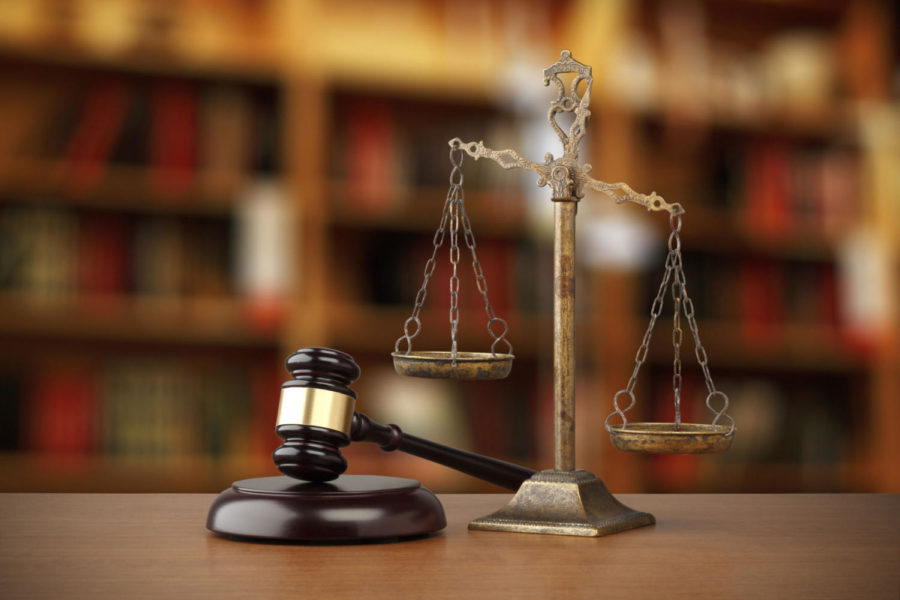Iowa ACLU is investigating court debt in Iowa
November 17, 2017
This October, the American Civil Liberties Union of Iowa (ACLU) announced a research project investigating Court Debt and the Criminalization of Poverty in Iowa.
When a citizen is involved in a legal matter regarding the court system in Iowa there can be a number of fees that are often unknown to the accused. These fees can add up and make a trip to court or jail costly.
The press release from an ACLU explained how the court fees can pile up and affect someone.
“First, whatever the charge, if you are taken into custody—guilty or not—you usually have an opportunity to post bail in a day or two. But if you can’t afford bail, you will remain in jail. Then, if you can’t afford a private attorney, you are assigned a court-appointed attorney. But because of those attorney’s heavy workloads and weekends off, you might not see your attorney for days,” said the press release.
The press release also mentioned that each day you spend in jail, regardless of if you pled guilty or innocent, or how you are convicted, you’ll still be accumulating a daily fee for room and board. In Polk County this fee is $95 per day, regardless of the outcome of the case or charges against you.
Along with the room and board fees of jail, if your employer finds out that you are in jail, you can be fired justly.
The 1963 Supreme Court case Gideon v. Wainwright ruled that under the Sixth Amendment, the United States is required to provide legal counsel to defendants who can not afford an attorney in criminal cases.
Jennifer Tostlebe is a doctoral student and graduate research assistant in the Sociology department at CU Boulder.
Jennifer explains the different types of fees courts can impose. “Costs are payments to reimburse the state and local jurisdictions for the costs of the criminal justice procedure.”
“Fines are monetary penalties which can be either mandatory or by the discretion of the judge and are imposed to act as punishment for committing a specific crime.”
“Restitution is a court-ordered payment some offenders must pay to their victim(s) to compensate them for their loss and/or injury.”
“Lastly, surcharges are add-on amounts implemented to generate revenue for goals not necessarily related to the criminal justice procedure.”
The state-provided attorney provided for those who can’t afford private legal counseling is not free, and sometimes not even cheap. Most people assume that the state will pay for the lawyer, but in Iowa this is not the case.
The ACLU press release said that “court-appointed attorneys and public defenders almost never come free of charge and almost never come with a cap on what their clients might owe,” meaning that the fee could depend on the length of the case or the legal complexity.
So even those in need of a state appointed attorney for financial reasons could soon find themselves in a mountain of debt from their case, even if they were innocent or the charges are dropped.
Court debt is similar to student loans in the sense that they will both stick with you even if you file for bankruptcy. The ACLU press release also mentioned that Iowans can be jailed for their inability to pay off court dept.
It is estimated that by the end of 2017 more than a thousand people could be jailed in Iowa for not being able to pay off previous court debt.
Tostlebe describes the court debt issue in Iowa as “well-intentioned, but unjust.”
Tostlebe said that “While monetary sanctions have a long history in the United States, offenders are being fined for many services that were once free, such as state-appointment legal representation provided to an individual because of their indigent socioeconomic status, room and board for jail stays, probation and parole supervision, and electronic monitoring devices and breathalyzers individuals are ordered to wear and use.”
Tostlebe added, “On top of this, the dollar amounts charged have grown substantially due to the increasing cost of running the nation’s criminal justice system.”
The ACLU will also be looking into racial disparities in court debt. The ACLU reports that “black people in Iowa are eleven times more likely to be convicted than white people.”
The press release pointed out reasons how the state worsens court dept in Iowa.
“ In 2015, the State of Iowa decided to partially privatize court fees collection. Now, after 30 days of non-payment, debts are automatically assigned for collection and some are turned over to a private debt collection agency. These private collectors automatically add a 25 percent collection fee to existing debt. This means that those who are unable to pay upfront end up owing significantly more than those who can.” Phil Brown hired by the ACLU to help investigate calls this a “poor tax,” the press release said.
Some of the court fees in Iowa include, Filing fee for a civil petition $185, appeal of judgment in a small claims case—$185, entering a final divorce decree—$50, motion to show cause for contempt—$50, for certification and seal of court document, (except for probate)—$20; probate is $10, For filing and indexing a transcript of judgment—$50, fee for jury trial—$100, penalty for late settlement of jury trial—$1000, court reporter fee $40/day. Other fees apply depending on the case. The full list of court costs can be found online at iowacourts.gov.
Mark Stringer, the executive director of the ACLU of Iowa, ended the report by saying, “The criminalization of poverty broadly also has serious implications for racial justice in our state. It’s an area that has too long been ignored, and the problems are only getting worse.”







